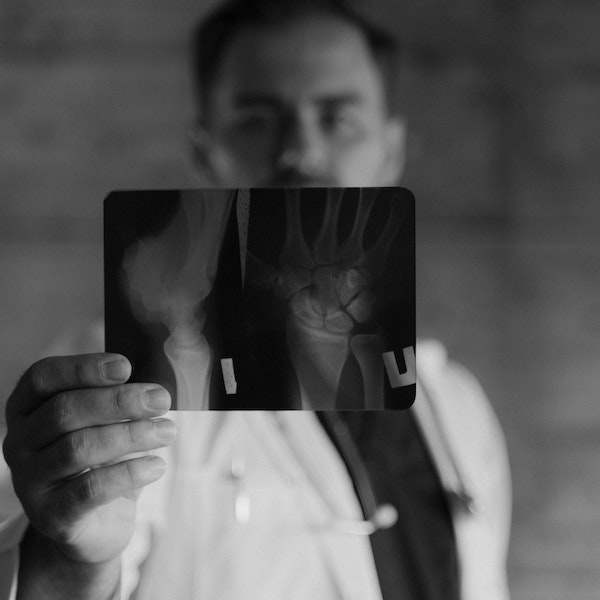The term “osteoporosis” itself speaks to its essence: “osteo” means bone, and “porosis” implies porous or weakened. This condition gradually erodes the density and quality of your bones, rendering them fragile and brittle.
Most people do not realize they have osteoporosis, as it can occur without any noticeable symptoms until a fracture occurs.
According to the International Osteoporosis Foundation, an estimated 200 million people worldwide suffer from this condition, with women being more susceptible,
if you are suffering from osteoporosis, you can prevent it by adopting a healthy lifestyle and proper medical treatment.
Let’s find out more about osteoporosis and ways for its prevention to reduce bone loss.
Understanding osteoporosis
Osteoporosis is often a silent disease that undermines the strength of your bones, making them more vulnerable to fractures.
The hallmark of osteoporosis is a decrease in bone mass making the bones thinner and more susceptible to fractures, even from minor incidents like a sneeze or a gentle bump.

The most common sites for fractures due to osteoporosis are the spine, hips, and wrists. It’s worth noting that osteoporosis can affect individuals of all ages and genders.
Shockingly, fractures due to osteoporosis occur every 3 seconds, translating to a staggering 8.9 million fractures annually.
Ways to prevent osteoporosis
Osteoporosis prevention isn’t about complex formulas; in fact, it’s about simple, consistent steps that collectively make a significant difference.
Take a calcium-rich diet
Calcium is the cornerstone of bone health. Make sure to include calcium-rich foods in your diet.
Dairy products like milk, cheese, and yogurt are excellent sources. If you’re lactose intolerant or prefer plant-b seed options, fortified plant milk, tofu, almonds, and leafy greens like kale and spinach.
In a study, it is recommended that, on average Australian adults should consume 1000 mg of calcium daily, and children need 1300 mg of calcium per day. Men and women aged above 70 years should also take 1300 mg of calcium daily.

Get your dose of Vitamin D
Vitamin D, often called the “sunshine vitamin,” is crucial for calcium absorption and bone health. It absorbs calcium from the digestive tract and maintains optimal bone density.
you should try to spend some time outdoors in sunlight to allow your skin to synthesize Vitamin D naturally.
Foods like fatty fish, egg yolks, and fortified products are also excellent sources of Vitamin D.

Prioritize physical activity
Physical activity isn’t just for building muscle, but it also makes bones stronger.
You should engage yourself in weight-bearing exercises, such as walking, jogging, dancing, and hiking puts stress on your bones.
Quit smoking
If you smoke, here’s one more reason to quit:
Smoking negatively impacts bone health. It may resist in body’s calcium absorption ability and often result in bone loss.
It’s never too late. You should seek support to quit and prioritize your bone health.
Limit alcohol intake
Excessive alcohol consumption can weaken bones and increase the risk of fractures.
If you choose to drink, do so in moderation. Ideally, women can have one drink a day, and men can take two drinks a day.
Reduce sodium intake
A diet high in sodium can lead to calcium loss through urine, weakening bones.
Therefore, you must opt for fresh, whole foods and limit processed and salty foods to help preserve bone health.

Eat a balanced diet
Besides calcium and Vitamin D, a well-rounded diet provides other essential nutrients supporting bone health.
You need to add magnesium, potassium, Vitamin K, phosphorus, and a variety of fruits, vegetables, whole grains, lean proteins, and healthy fats into your meals.
Maintain a healthy weight
Being underweight can increase the risk of bone loss and fractures.
You can maintain a healthy weight through a balanced diet and regular exercise. If you need to lose weight, do so gradually and under the guidance of a healthcare professional.
Stay hydrated
Believe it or not, staying hydrated is also essential for your bone health.
Water helps transport nutrients to your cells, including those needed for bone maintenance. Have at least eight glasses of water a day.

Regular medical check-ups
Regular medical check-ups can help monitor your bone health.
If you’re at a higher risk due to age, family history, or other factors, your doctor might recommend a bone density test to assess your bone strength.
Takeaway
Preventing osteoporosis requires consistent effort and a holistic approach.
By adopting a bone-friendly lifestyle that includes a balanced diet, exercise, and healthy habits, you can lay the foundation for strong bones that support you throughout your life.
Remember, it’s always early enough to start investing in your bone health. Your future self will thank you for the strong, unbreakable bones you’ve built today.
FAQs
Who is at a higher risk of developing osteoporosis?
It is not specific, but most men over the age of 50, especially post-menopause, are at a higher risk. Additionally, individuals with a family history, low body weight, and those certain medical conditions are also more susceptible.
Can young adults develop osteoporosis?
Osteoporosis often develops over time, but adequate calcium intake, physical activity, and healthy lifestyle choices in your early years can reduce the risk and pay off later in life.
Are there any warning signs of osteoporosis?
Osteoporosis is often called the “silent disease” because it progresses without noticeable symptoms until a fracture occurs. Regular check-ups and bone density tests can help identify it in its early stages.
Is osteoporosis treatable?
Well, osteoporosis is not fully reversible; it’s managed. A combination of medication, proper nutrition, exercise, and lifestyle changes can slow down its progression and reduce the risk of fractures.


